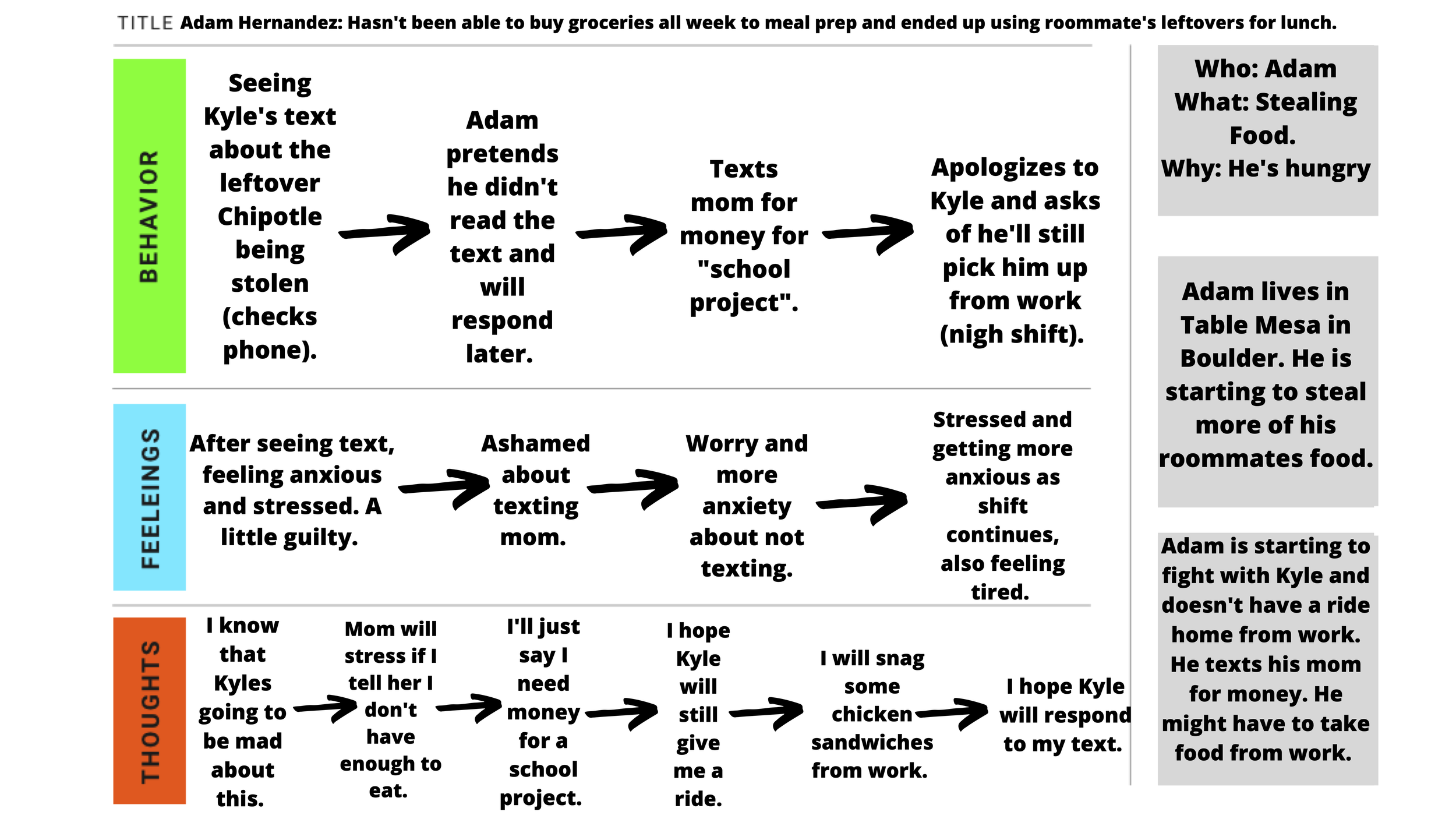BuffsEat
Speculative Pre-Paid Grocery Card Program | 2022
About the Project
Strategy | Design Thinking & Research | UX/UI Design | Branding | Graphic Design | Solution Evaluation
BuffsEat is a speculative pre-paid grocery card program, researched and designed to address food insecurity on CU Boulder’s campus. Despite the fact that Boulder is a highly affluent city, a surprising number of students at CU Boulder face food insecurity. The stress of not knowing where a next meal will come from can put additional and unnecessary stress on students, and the stigma surrounding food insecurity can cause students to feel embarrassment and isolation from their peers.
Through a robust, semester-long project, my team went through the design thinking process to come up with a solution that would successfully address and help alleviate food insecurity for CU Boulder students. We began with a “How might we…” statement that specifically defined the problem we set out to address. From there, we fleshed out three design personas to guide our brainstorming, and to ensure we understood the problem from the perspective of someone actively experiencing it. We then went through several rounds of storyboarding & user journey mapping to gain further understanding of the problem, striving to further our understanding of the problem. At the end of this process, we were able to undergo informed brainstorming of solutions that would fit our target audience. Based on what we learned and the insights we garnered, we created BuffsEat.
BuffsEat is a prepaid grocery card program funded through the university to provide food insecure individuals with money for their basic grocery needs, as well as giving them freedom and agency to shop when and where they choose. Because the program is university funded, it will give participants the feeling that they are helping themselves, which we hope will alleviate the burdensome feelings that can occur when needing to ask loved ones for financial assistance. By functioning as a normal debit card, BuffsEat also allows individuals to shop with their friends and at their leisure, with out their food insecure status being obvious. Through this, we hope to remove the stigma food insecure individuals often undergo. BuffsEat also provides students with a tangible solution to food insecurity, helping them to feel less helpless and trapped.
Deliverables
BuffsEat app click through video
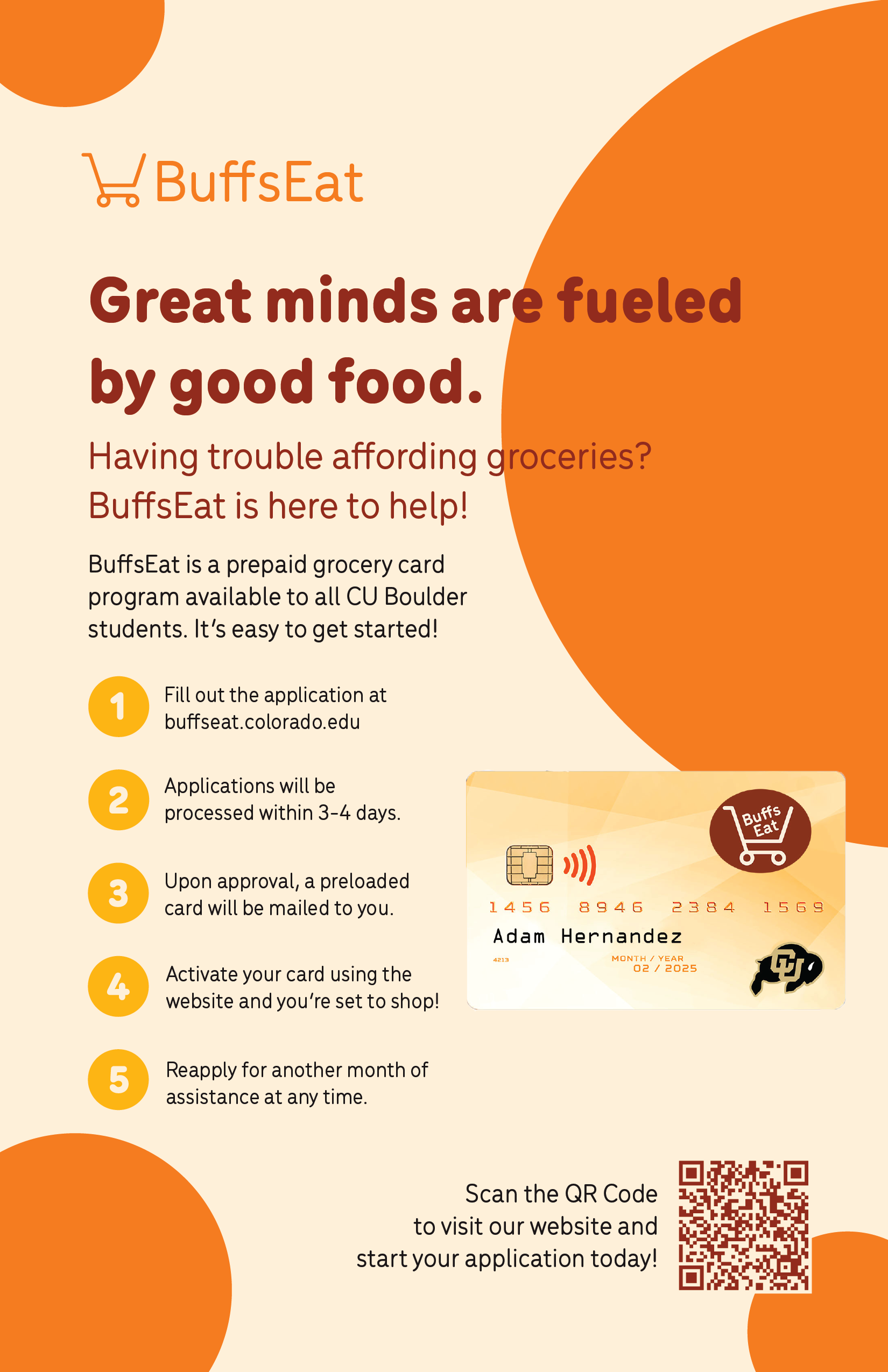
Print Flyer - intended to be hung up around campus & at high-visibility public places in town, such as the library.
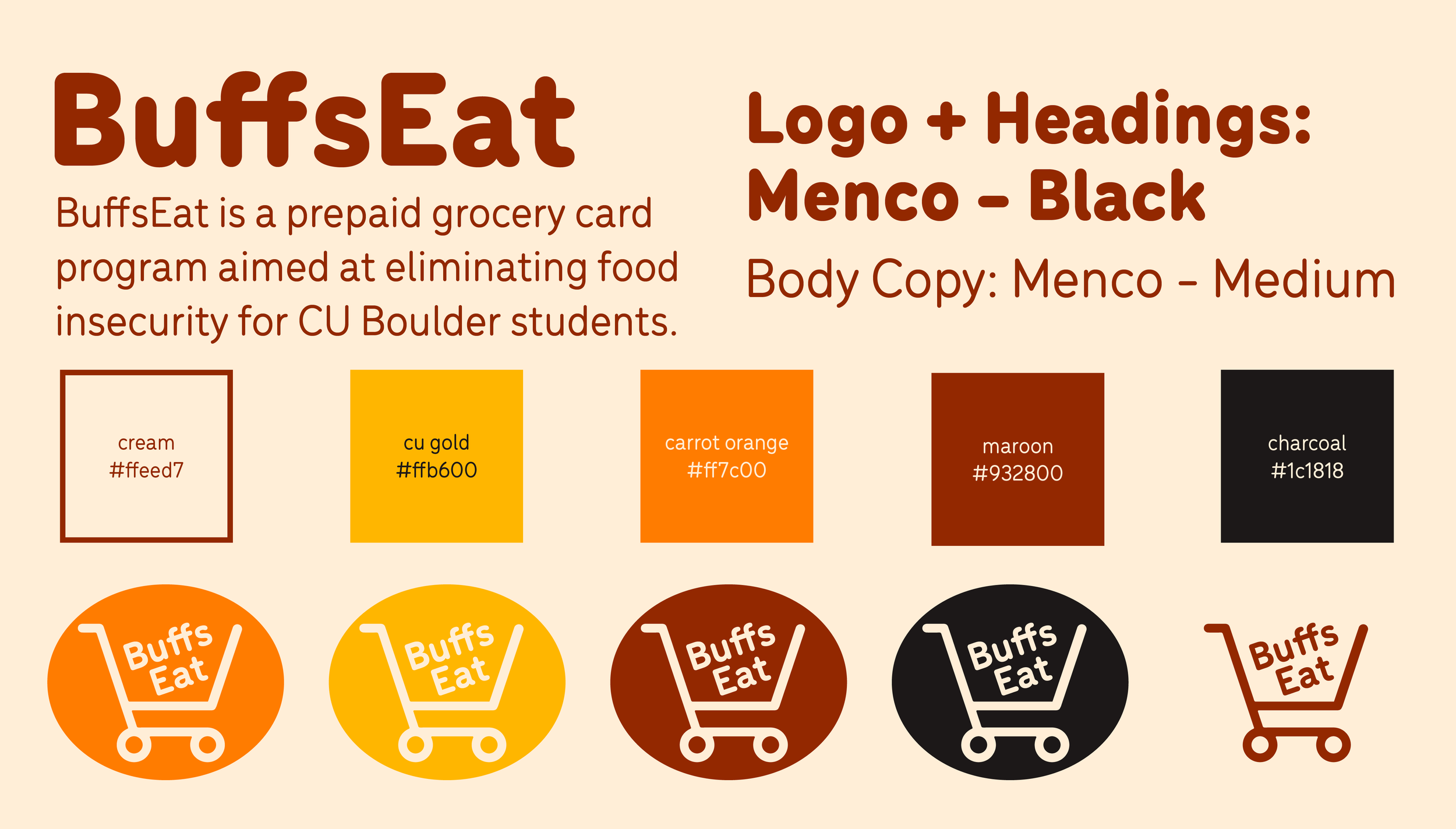
BuffsEat branding

Mockup of the branded grocery card
Documentation of Project Flow
“How might we…?” Statement
My team used a “How might we…?” statement to guide our ideation. The goal of this technique was to identify our problem very specifically, and from the perspective of someone actively experiencing it. This helped us to determine what we would need to learn about the problem environment, and therefore how to most effectively design our solution. The statement was revised throughout the brainstorming phases as we “got to know” our design personas & honed in on the project topic, and it is personalized to our primary design persona. The final iteration of the statement is as follows:
How might we help Adam know where his next meal is coming from at all times, so that he is able to focus on his education and other endeavors?
Design Personas
After identifying food insecurity on CU Boulder’s campus as our problem space, my team worked to create three design personas. These characters are a pairing of demographic and emotional data that reflect someone who could realistically be experiencing the problem we are setting out to solve in real life. We used these personas to help us develop empathy for and understanding of those involved with the problem we wished to solve. Our first persona, Adam, reflects someone who is personally experiencing the issue at hand, and the other two personas, Kyle and Marta, are people in close relation to Adam.

Adam Hernandez is a 20 y.o. Hispanic male from Aurora, CO who is attending the University of Colorado Boulder as a first-generation student. He is introverted, conscientious, anxious, intractable, and routine-driven. He works two part time jobs while attending school full time as a computer science major in order to pay for his schooling & basic needs. He lives in the Table Mesa area of Boulder.

Marta Hernandez is a 45 y.o. Hispanic female living Aurora, CO with three of her four children and her husband. Marta is Adam's mother, and she is extroverted, agreeable, conscientious, anxious, and routine-driven. She works full-time as a manager at Office Max, and is also the primary care taker at home. Marta does her best to help Adam with his school & living expenses, but is not always able to.

Kyle Anderson is a 20 y.o. white male who attends the University of Colorado Boulder as a Communications major. Kyle is Adam's roommate, and he is extroverted, intractable, selfish, emotionally indifferent, and open to new experiences. He is in a fraternity and loves to party. His parents pay for all of his expenses while also supplying him with spending money. Kyle lives in the Table Mesa area of Boulder, commuting to campus in his BMW.
User Journey Mapping
Once we created our design personas, my team commenced user journey mapping exercises, in which we applied narrative in a thoughts/feelings/behaviors framework. This exercise allowed us to go through theoretical situations our personas may experience and extract actionable insight from how they think, feel ,and act.
Scenario Storyboarding
Similarly to the journey mapping exercises, my team created several storyboards of more theoretical situations our personas may experience to gain further insight into how the problem at hand affects them, how they feel, and how they react.
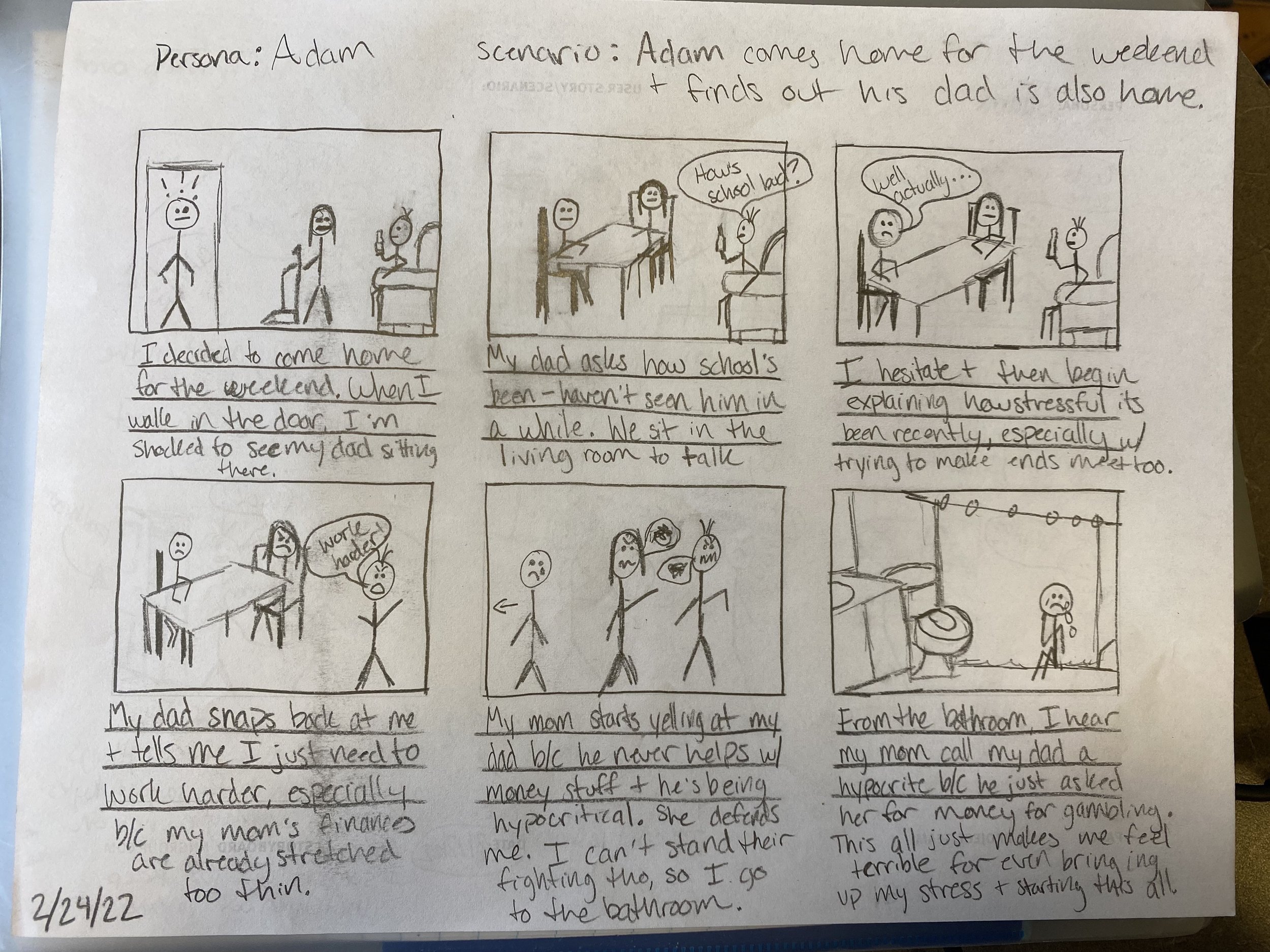
Summary of scenario: Ricky Hernandez, Adam's father, is unwilling to give him money to help with expenses. Marta is frustrated with him, because Ricky spends lots of the family's money gambling. Adam feels burdensome for causing the argument between his parents & asking for financial help in the first place.

Summary of scenario: Adam feels shameful because Kyle rudely and passive aggressively calls attention his food insecurity in front of one of his friends. Adam is also sad and embarrassed that he doesn't have snacks to share with is friends when they come over. Adam's friend feels awkward having to sit through Adam & Kyle's argument, and feels confused when Adam doesn't fill him in on what's happening.
Insights Derived from the Process
Adam felt shameful and experienced the stigma surrounding food insecurity.
Food insecurity can make people feel like a burden to their loved ones when they need to ask for help.
Parents are people too. They can’t always help out. Adam is in need of an external solution.
People with food insecurity don’t have the same agency and autonomy when it comes to choosing what food to eat as those who are financially comfortable enough to not worry about how they’ll be paying for their next meals.
Low-Fidelity Prototyping

Login Page

Application
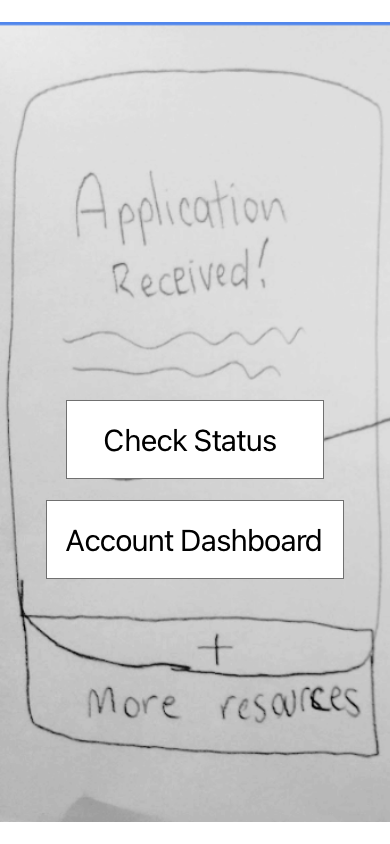
Confirmation page after submission
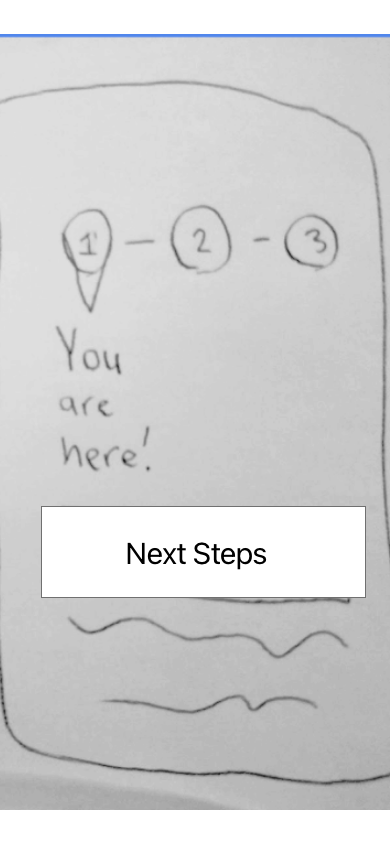
Application status
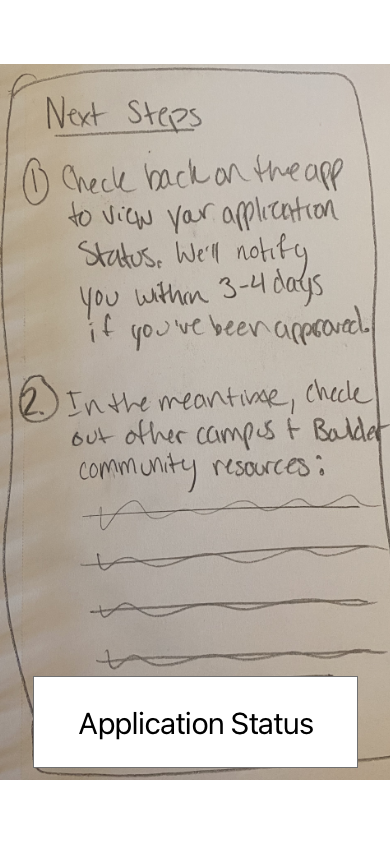
Next Steps/Additional Resources

Account Dashboard
Medium-Fidelity Prototyping

Login

Home page

Application
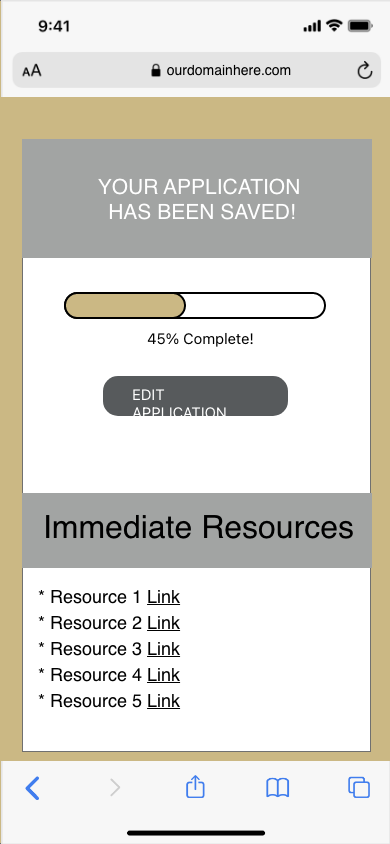
Application saved
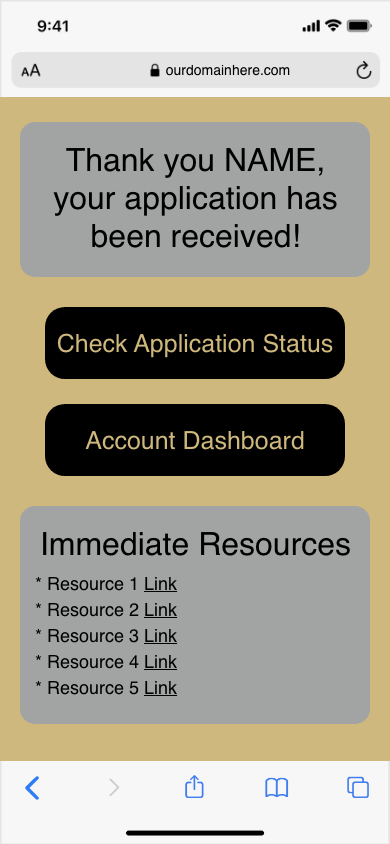
Submission confirmation
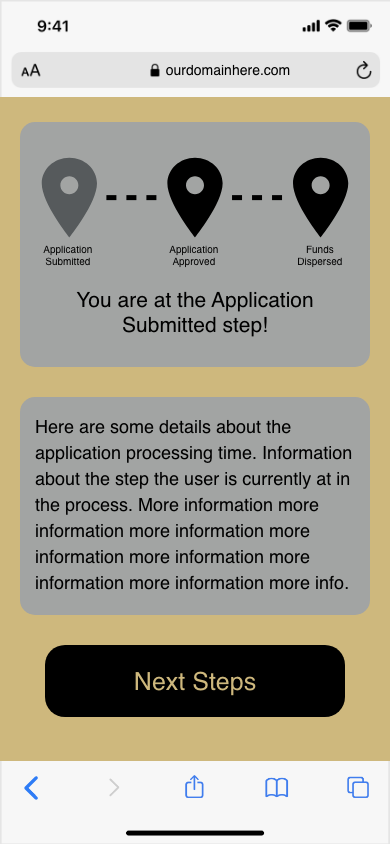
Application status

Next Steps

Account Dashboard


